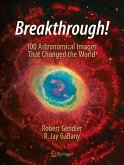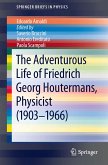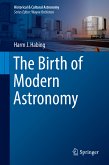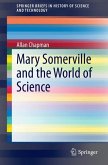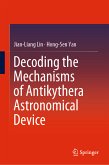Dieser Download kann aus rechtlichen Gründen nur mit Rechnungsadresse in A, B, BG, CY, CZ, D, DK, EW, E, FIN, F, GR, HR, H, IRL, I, LT, L, LR, M, NL, PL, P, R, S, SLO, SK ausgeliefert werden.
"François Arago is a fine, scholarly work, fully footnoted, with a detailed bibliography. The layout and exposition are clear, making it easy to locate specific researches. It is very well written and easy to read. I thoroughly enjoyed this book and learned much from it, and warmly recommend it to everyone interested in early-19th-Century astronomy and physics." (Allan Chapman, The Observatory, Vol. 136 (1252), June, 2016)



